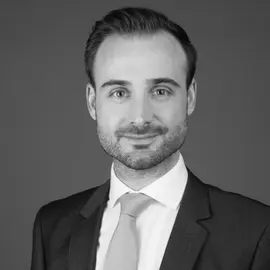Prof. Dr. Thomas Mayer

Prof. Dr. Thomas Mayer
ZHAW
School of Engineering
Forschungsschwerpunkt Angewandte Mechanik
Technikumstrasse 9
8400 Winterthur
Arbeit an der ZHAW
Tätigkeit
Schwerpunktleitung Mechanics for Modelling, Dozent für Mechanik
Arbeits- und Forschungsschwerpunkte
- Thermo-Mechanische Prozesssimulation (z.B. für Additive Fertigung)
- Materialcharakterisierung & Materialmodellierung (Metalle)
- Modellierung von Schädigungsmechanismen & Lebensdauervorhersage (Metalle)
- Thermo-mechanische FE Simulation & Strukturoptimierung
Lehrtätigkeit
Berufserfahrung
- F&E Ingenieur (Mechanische Komponenten)
General Electric / Alstom, Schweiz
01 / 2015 - 12 / 2019 - F&E Ingenieur (Centre for Mechanical Integrity)
inspire AG
01 / 2012 - 09 / 2013 - Doktorand / Forschungsassistent
Empa - High Temperature Integrity Group, Schweiz
09 / 2008 - 08 / 2012
Aus- und Weiterbildung
Ausbildung
- Doktorat (Dr. sc. ETH) / Maschineningenieurswissenschaften - Experimentelle und Strukturmechanik
ETH Zürich / Empa
09 / 2008 - 12 / 2012 - MSc ETH / Maschineningenieurswissenschaften - Mechanik, Strukturen und Fertigung
ETH Zürich
03 / 2007 - 09 / 2008 - BSc ETH / Maschineningenieurswissenschaften - Strukturmechanik
ETH Zürich
09 / 2003 - 08 / 2007
Weiterbildung
- Interne Führungsausbildung
ZHAW
09 / 2022 - CAS Hochschuldidaktik
PHZH Pädagogische Hochschule Zürich
09 / 2020
Netzwerk
Mitglied in Netzwerken
- ORCID ID: 0000-0003-3083-9926
- Additive Manufacturing Plattform
- Plattform Industrie 4.0
- Fachgruppe Mechanik
Projekte
- Reduzierte Eigenspannungen durch Optimierung der Stützstruktur beim Laser-Pulverbettschmelzen / ProjektleiterIn / Projekt laufend
- Digitaler Zwilling von ROSTA Gummifederelementen / Stellv. ProjektleiterIn / Projekt laufend
- Verbesserte Prozesssimulation durch maschinelles Lernen beim Laser-Pulverbett-Fusionieren (LPBF) / ProjektleiterIn / Projekt laufend
- Evaluation eines Machine Learning Tools in der Mechanik / ProjektleiterIn / Projekt abgeschlossen
- Fertigbarkeitsstudie eines Rotors für neuen Druckwellenlader / Stellv. ProjektleiterIn / Projekt abgeschlossen
- Machbarkeitsstudie zum Prozessmonitoring mittels smarter Gummifederelemente / ProjektleiterIn / Projekt abgeschlossen
- Optimierung additiv gefertigter metallischer Bauteile mit Prozesssimulation / ProjektleiterIn / Projekt abgeschlossen
Publikationen
-
Scheel, Pooriya; Markovic, Patrik; Van Petegem, Steven; Makowska, Malgorzata Grazyna; Wrobel, Rafal; Mayer, Thomas; Leinenbach, Christian; Mazza, Edoardo; Hosseini, Ehsan,
2023.
Additive Manufacturing Letters.
6(100150).
Verfügbar unter: https://doi.org/10.1016/j.addlet.2023.100150
-
Scheel, Pooriya; Wrobel, Rafal; Rheingans, Bastian; Mayer, Thomas; Leinenbach, Christian; Mazza, Edoardo; Hosseini, Ehsan,
2023.
Advancing efficiency and reliability in thermal analysis of laser powder-bed fusion.
International Journal of Mechanical Sciences.
260(108583).
Verfügbar unter: https://doi.org/10.1016/j.ijmecsci.2023.108583
-
Baertsch, Florian; Ameli, Amir; Mayer, Thomas,
2021.
Journal of Engineering Mechanics.
147(7).
Verfügbar unter: https://doi.org/10.1061/(ASCE)EM.1943-7889.0001923
-
Mayer, Thomas; Brändle, Gabriel; Schönenberger, Andreas; Eberlein, Robert,
2020.
Simulation and validation of residual deformations in additive manufacturing of metal parts.
Heliyon.
6(5), S. e03987.
Verfügbar unter: https://doi.org/10.1016/j.heliyon.2020.e03987
-
Mayer, Thomas; Friso, Francesca; Kunze, Karsten; Radis, Rene,
2024.
Transformation induced anisotropic thermal expansion of LPBF processed Ti-6Al-4V.
In:
3rd Materials Science Colloquium, Lech am Arlberg, Austria, 15-18 April 2024.
Publikationen vor Tätigkeit an der ZHAW
- Characterisation and modelling of the microstructural and mechanical evolution of a steam turbine rotor steel.
- A continuous Masing approach for a physically motivated formulation of temperature and strain rate dependent plasticity
- Parameter evolution in a continuous Masing approach for cyclic plasticity and its physical interpretation
- Dislocation density and sub-grain size evolution of 2CrMoNiWV during low cycle fatigue at elevated temperatures
- A Masing-type modelling concept for cyclic plasticity at elevated temperature
- A Masing-type modelling concept for cyclic plasticity at elevated temperature. Proc. Conf. on IUTAM Symposium on Advanced Material Modelling for Structures, Paris.
- The effect of sub-grain formation and development on cyclic response in engineering steels. Proc. Conf. on 18th European Conference on Fracture Dresden. DVM, pp. AA.02.01-O5.
- Mayer T., Davydov V., Holdsworth S. R., Lukás Strunz, P., 2010. Neutron diffraction examination of dislocation density evolution in a bainitic steel after low-cycle fatigue test at elevated temperatures. Eur. Conf. on Residual Stresses ECRS 8, Riva del Garda. Poster.